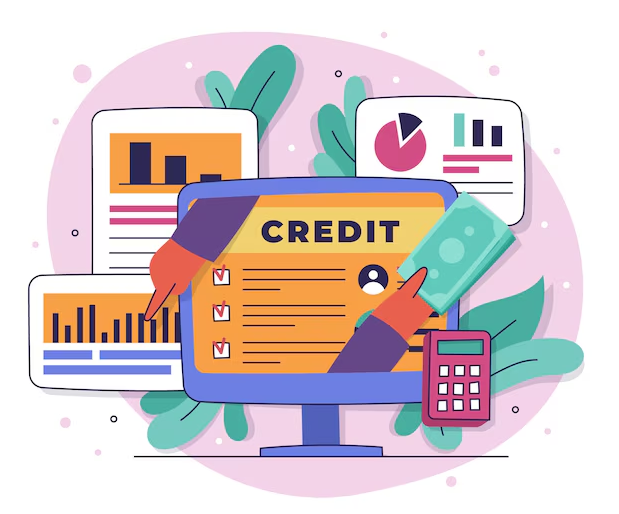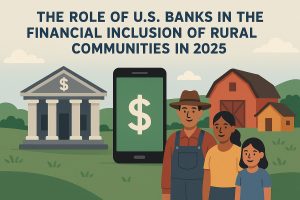Your credit score is a pivotal aspect of financial health in the United States. Whether you’re applying for a loan, renting an apartment, or even securing a job, your credit score often determines how others perceive your financial reliability.
Thankfully, a myriad of online tools and resources are available to help you manage, monitor, and improve your credit score effectively. This guide delves into these resources, showing how they can empower you to take control of your financial future.
Understanding the basics of credit scores

Before diving into the tools, it’s crucial to understand what a credit score is and why it matters. Your credit score is a three-digit number derived from your credit history, representing your creditworthiness. It is influenced by factors such as payment history, credit utilization, length of credit history, types of credit, and recent inquiries.
The most widely used credit scoring model in the U.S. is the FICO score, ranging from 300 to 850. A higher score indicates better creditworthiness, which can lead to favorable loan terms and lower interest rates. Another popular model is VantageScore, which uses similar factors to calculate your score.
Understanding how these scores work is essential. By knowing which behaviors positively or negatively affect your credit, you can make informed decisions. For instance, missing payments or carrying high credit card balances can significantly harm your score, while maintaining low balances and consistent on-time payments will boost it.
Credit monitoring platforms: staying informed in real-time
Credit monitoring platforms are indispensable for keeping an eye on your credit score and report. Services like Credit Karma, Experian, and Credit Sesame provide users with free access to their credit scores and reports. These platforms also offer alerts for significant changes, such as new accounts or credit inquiries.
Credit Karma, for example, offers insights into your TransUnion and Equifax credit reports. It breaks down your score into factors, helping you understand which areas need attention. Its user-friendly interface provides actionable advice, such as ways to lower your credit utilization or address late payments.
Real-time monitoring helps you catch inaccuracies or fraudulent activities quickly. If you notice an unexpected drop in your score, these platforms enable you to investigate the cause and take corrective actions promptly. Staying informed through credit monitoring platforms is one of the first steps in effective credit management.
Budgeting apps with credit management features
Budgeting and credit management often go hand in hand. Many budgeting apps, such as Mint and YNAB (You Need a Budget), include features that help you track your spending and its impact on your credit score. These apps give you a comprehensive view of your financial health, highlighting how debt management and payment habits influence your credit.
Mint, for instance, allows users to view their credit score alongside budgeting tools. It offers tips tailored to your financial behavior, helping you optimize debt payments to improve your score. The app’s ability to sync with your accounts ensures you always have an accurate picture of your financial standing.
These apps not only help you plan your finances but also encourage disciplined spending. By avoiding overspending and ensuring timely payments, you can maintain a healthy credit score. The integration of budgeting and credit management in these tools provides a holistic approach to financial well-being.
Educational resources: empowering through knowledge
Managing your credit score is easier when you understand the principles behind credit scoring models and financial management. Many online platforms, including blogs, video tutorials, and webinars, offer valuable information on improving credit scores and avoiding common pitfalls.
The Consumer Financial Protection Bureau (CFPB) website is a reliable source for detailed explanations of credit laws and consumer rights. It also provides guidance on disputing errors in your credit report. Additionally, platforms like NerdWallet and Investopedia offer articles and guides on credit-related topics, tailored to beginners and advanced users alike.
Education is a powerful tool in financial management. By equipping yourself with knowledge, you can make informed decisions and avoid common mistakes, such as overusing credit cards or neglecting to check your credit report regularly. Understanding the nuances of credit scoring empowers you to use online tools more effectively. It also builds confidence in your ability to navigate complex financial systems, enabling you to take proactive steps in improving your credit health.
Debt management tools: tackling credit challenges head-on
For those struggling with high levels of debt, specific online tools can help manage and reduce it. Services like Debt Payoff Planner and Tally specialize in creating personalized plans to tackle debt efficiently. By integrating these tools into your strategy, you can address one of the major factors influencing your credit score: credit utilization.
Debt Payoff Planner helps users prioritize debt payments, using strategies such as the snowball or avalanche method. It provides clear timelines for becoming debt-free, motivating users to stay on track. The app’s visual charts and progress trackers make it easier to see the impact of your efforts. Tally, on the other hand, consolidates credit card debt and automates payments to minimize interest charges.
Reducing debt not only improves your credit utilization ratio but also alleviates financial stress. With consistent effort and the right tools, you can regain control over your financial situation and set the stage for a higher credit score. These resources demonstrate that even daunting credit challenges can be overcome with the right approach.
Final thoughts: building a sustainable credit future
Managing your credit score requires ongoing effort, but the rewards are well worth it. The online tools and resources available today make this task more accessible than ever. From monitoring your credit to educating yourself and tackling debt, these platforms provide the guidance and support you need to succeed.
By leveraging these tools effectively, you can achieve a credit score that opens doors to better financial opportunities. A higher credit score not only means access to lower interest rates and better credit terms but also signifies financial discipline and reliability. Remember, your credit score is not just a number; it’s a reflection of your financial habits.
The journey to mastering your credit score involves learning, adapting, and leveraging the wealth of resources at your disposal. Online tools have democratized access to credit management, enabling everyone—from seasoned professionals to young adults starting their financial journey—to take charge of their credit health.






